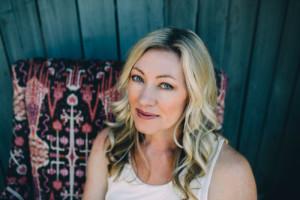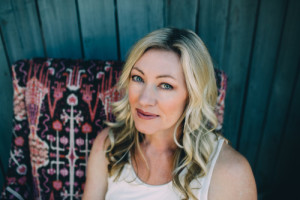
Welcome to the Faith Deployed...Again online book club, Day Four! (Not sure what this is all about? Click here.)
In Your Book: Before we begin, please turn in your copy of Faith Deployed...Again to page 36 and read "Rethinking my Rituals" by Leeana Tankersley. (If you don't have a book, don't go away! We'd love to have you join us for this discussion!) Now Let's Talk: Today's discussion is led by Leeana Tankersley. One of my most toxic go-to rituals is blame. I have somehow convinced myself that placing blame on others will make me feel better. -If my kids would just give me a break and play quietly, then I wouldn’t have to yell. -If my husband would realize how tired I am, then he wouldn’t ask me “what’s for dinner” right when he walks in the door, and I wouldn’t get so angry at him. -If this tour wasn’t so demanding, then I could be happy. Rehearsing in my head how the angst I’m feeling is entirely someone else’s doing, someone else’s problem, allows me to never have to take personal responsibility for my feelings and, therefore, what I do with those feelings. This is the behavior of an addict. Isn’t that hard to hear? But it’s true. Addicts say, if other people weren’t so difficult, if I wasn’t so misunderstood, if life wasn’t so hard, then I wouldn’t have to drink. Soon after I became a mother (my initiation into motherhood came in the form of boy/girl twins), I was barraged with a restless, despairing angst. Because I wasn’t blissed out at every possible moment of motherhood, the toxic voices in my head began reminding me that “good women love motherhood” and “good women are happy” and “good women can handle it all.” Clearly, I was not one of the “good women.” This whole scenario was a recipe for emotional disaster. While I didn’t pick up a drug habit, I did see that my emotional rituals—like blaming—were just as addicting and just as destructive. Toxic rituals of thinking lead to toxic rituals of behavior. [Tweet "Though I wanted to blame everyone else, my deepest dissatisfaction was with myself."] I also saw that though I wanted to blame everyone else, my deepest dissatisfaction was with myself. That reality was almost impossible to admit and confront because it was so deeply painful. I mentioned in my devotional “Rethinking My Rituals” that the 12-step program, Emotions Anonymous (http://www.emotionsanonymous.org/ ), has been of some help to me as I try to cope with the moment-by-moment realities of motherhood and military life. EA is a program for anyone who suffers from depression, anger, broken or strained relationships, grief, anxiety, low self-esteem, panic, abnormal fears, resentment, jealousy, guilt, despair, fatigue, tension, boredom, loneliness, withdrawal, obsessive and negative thinking, worry, compulsive behavior and a variety of other emotional issues. Much of what has been helpful to me in the 12-step program is the relentless emphasis on taking responsibility for myself. Stop blaming others for my problems. Stop expecting others to rescue me from my unhappiness. Stop waiting for circumstances to change in order to begin living. Once I admitted that my inner life had become out of control, and I stopped expecting everyone else to solve that problem for me, I was able to come to Christ with my true self. Step 2 states, “We came to believe that a power greater than ourselves could restore us to sanity.” I began to internalize the truth that only Christ can bring the dead back to life. Only Christ saves. I cannot blame others when they aren’t able to resurrect me out of my soul death. And I cannot blame myself for being human, not God. Six months ago, we PCSed to the Middle East. Making an international move with two 2 ½ year old toddlers (while newly pregnant with our third) was a true test of my emotional health. The first couple of months we were here, I was on the verge of panic at some points. Yet, if I could slow myself down enough to bring my true self to Christ—if that could become my default ritual in the middle of such a big, angst-filled mess—tiny beams of hope somehow showed up. I remember taking my kids to preschool and then spending the entire time they were gone pouring out my heart, crying three straight hours sometimes. I would use those mornings to filet myself open before Christ and ask him to come into my feelings of self-contempt and exhaustion. In those tear-filled mornings, life would begin again. I could breathe again. All because I didn’t blame, but instead, I chose to take personal responsibility for my feelings and for my own health . . . laying it all at the feet of Christ my comforter.
I don’t have to live as if I am a victim to the behavior and choices of those around me or to the circumstances I find myself in.
As we begin the New Year, I am committed more than ever to the ritual of taking personal responsibility for my health, especially my emotional health. I don’t have to live as if I am a victim to the behavior and choices of those around me or to the circumstances I find myself in. As I wrote in “Rethinking My Rituals:”
“God desires freedom for all of us, a life that is more than numbing and escaping. A full life. We cannot lead a full life if we are constantly looking for ways to flatline our hearts and souls” (37).
Part of living a fully alive life is waking up to the fact that I do have choices. I cannot control everyone and everything—in fact, there’s very little I can control completely—but I have a choice in what I will do with my feelings every day. As the serenity prayer says, “God grant me the serenity to accept the things I cannot change; courage to change the things I can; and wisdom to know the difference. I am praying for us all that we would practice the great disciplines of acceptance and courage and that these practices would lead us to constructive, not destructive, rituals. May we find ourselves—again and again—at the feet of Christ this year. Discuss: What resonates with you most from this post? Where do you see yourself in my story?


Comments
Add new comment